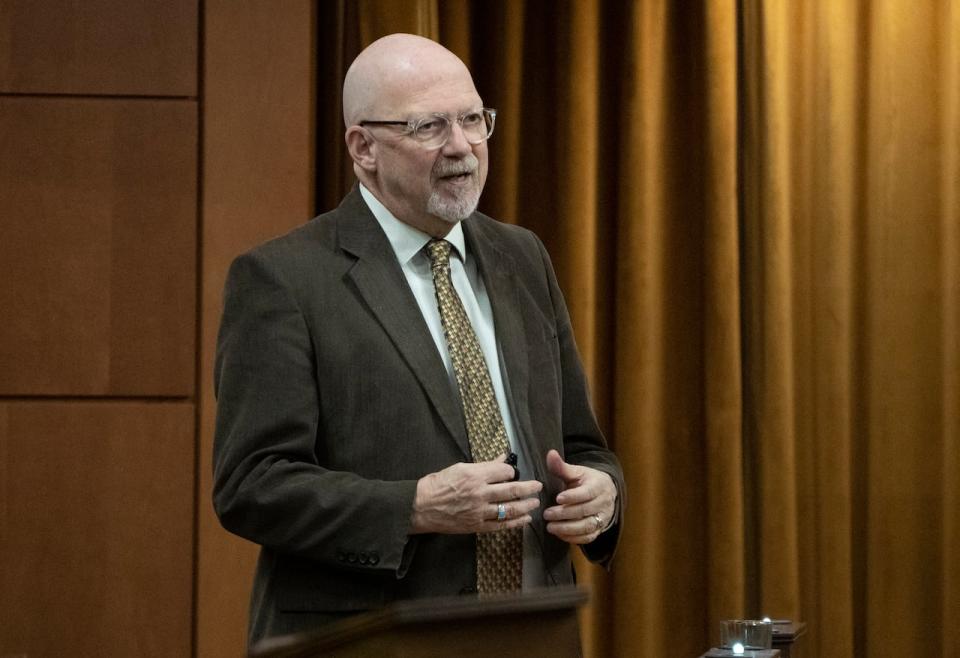Very few pardons for pot possession have been granted since 2019
A program meant to expedite pardons for cannabis possession is still experiencing low uptake — and the federal government says it doesn't know how many possession records have been "sequestered" under a different program.
When the expedited pardon program was launched in August 2019, the federal government estimated that 10,000 Canadians would be eligible for it. Nearly five years later, the Parole Board of Canada says only 845 pardons for cannabis possession have been granted under the program.
"It's clear it doesn't work," NDP MP Randall Garrison said of the program.
Even though recreational cannabis has been legal in Canada since 2018, having a record for possession of cannabis can prevent a person from getting a job or travelling outside the country.
Andrew Tanenbaum, director of the non-profit organization Pardons Canada, said that seeking a pardon can be a tedious process and he suspects some Canadians with possession records may be apathetic about applying.
"Most people who needed a pardon for a drug charge already applied for one," he said.
The Parole Board of Canada says more than 1,300 Canadians applied for pardons. Hundreds of applications were either incomplete or ineligible, the board said.
No update on record 'sequestration' program
Garrison pushed for an alternative program in 2022. He proposed an amendment to the Liberals' criminal justice legislation Bill C-5 that would automatically "sequester" records for simple possession, meaning they would no longer show up on criminal background checks.
The Liberals accepted Garrison's amendment and Bill C-5 received royal assent in November of 2022. It gave the government two years to sequester all possession records — for cannabis and for other drugs — across the country.
But both Garrison and Tanenbaum said they're worried the government won't meet that November 2024 deadline.
"It's a bureaucratic nightmare," Tanenbaum said, noting that record sequestration hasn't really been done on a national level before.
"The amount of bureaucracy that is required to do that is probably much more complicated than the pardon system."

Garrison said he's heard concerns about slow progress on the sequestration program. He asked the government for an update through an order paper question in the House of Commons.
The government's response to Garrison suggested that jurisdictional overlap is making it difficult to state how many records have been sequestered so far.
"Given the decentralized manner in which criminal records are stored and that the possession of controlled substances is governed across several legislative frameworks, effective implementation [of the program] requires federal, provincial, territorial and municipal government co-operation," Liberal MP Jennifer O'Connell told the House in early May.
"There is much work left to be done to reduce the barriers those with a criminal record continue to face."
A spokesperson for Public Safety Minister Dominic LeBlanc told CBC News the government still intends to meet the November deadline.

"The sequestration of criminal records for simple possession of cannabis is a significant undertaking that requires the cooperation of our provincial, territorial and municipal partners," Jean-Sébastien Comeau, LeBlanc's director of communications, said in an email.
"We will continue to work with them, as we have since the coming-into-force of this legislation, to ensure we meet that deadline."
Garrison said he's not sure what the implications would be for the government if it failed to meet the deadline.
"The government has had two years to do this and they need to get it done," he said.
The program is urgently required, he said, because the opioid crisis has made the need to get addicts into treatment more pressing than ever.
"How are we going to get people into treatment with the supports they need if they can't access the housing they need to do that because of a criminal record?" he said.
"There's no victim to simple possession charges for drugs, other than the person who's struggling with substance abuse problems."


